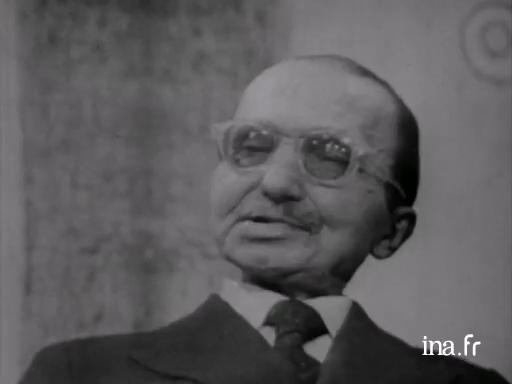Nikos Kazantzakis regarding Zorba the Greek and St. Francis of Assisi

Information
Interview with Nikos Kazantzakis regarding two of his books Zorba the Greek and St. Francis of Assisi.
Context
Nikos Kazantzakis was born in Heraklion, in Crete, in 1883, and died in Freiburg im Breisgau (Germany) in 1957. His childhood and his youth were marked by a double experience, the matrix of his life and of his future works: the exile from Crete, plagued by insurrections in 1880 - which made him fiercely nationalist, and Nietzsche's nihilist philosophy, which became the subject of his doctorate thesis.
From 1910 on, he lived in Greece, where he started publishing and creating his personal pantheon: Homer, Nietzsche of course, Bergson, Georges Zorbas (whom he met in 1914), to which he later added Christ and Buddha, Lenin and Trotski. From the 1920s on, he traveled through all of Europe - he was in Spain during the civil war -, in the USSR and in Asia. Meanwhile, he pursued a political career, in his country and at UNESCO. Blessed with an amazing capacity to work, he wrote massive works: poetry, tragedies, stories about trips, philosophical essays, novels, and translations. His Odyssey (1938) is an epic that took 10 years to write, made up of 33 333 lines containing 17 syllables each.
In 1946, his seminal work, Zorba the Greek, was released. In 1951, The Last Temptation created a scandal: in this mystical work, he portrays the Christ as a man, who is subject to doubt. The work was blacklisted by the pope. A friend of Dr. Schweitzer, Nikos Kazantzakis received the Peace Prize in 1956. Buried in Heraklion, his epitaph reads "I hope for nothing. I fear nothing. I am free."














